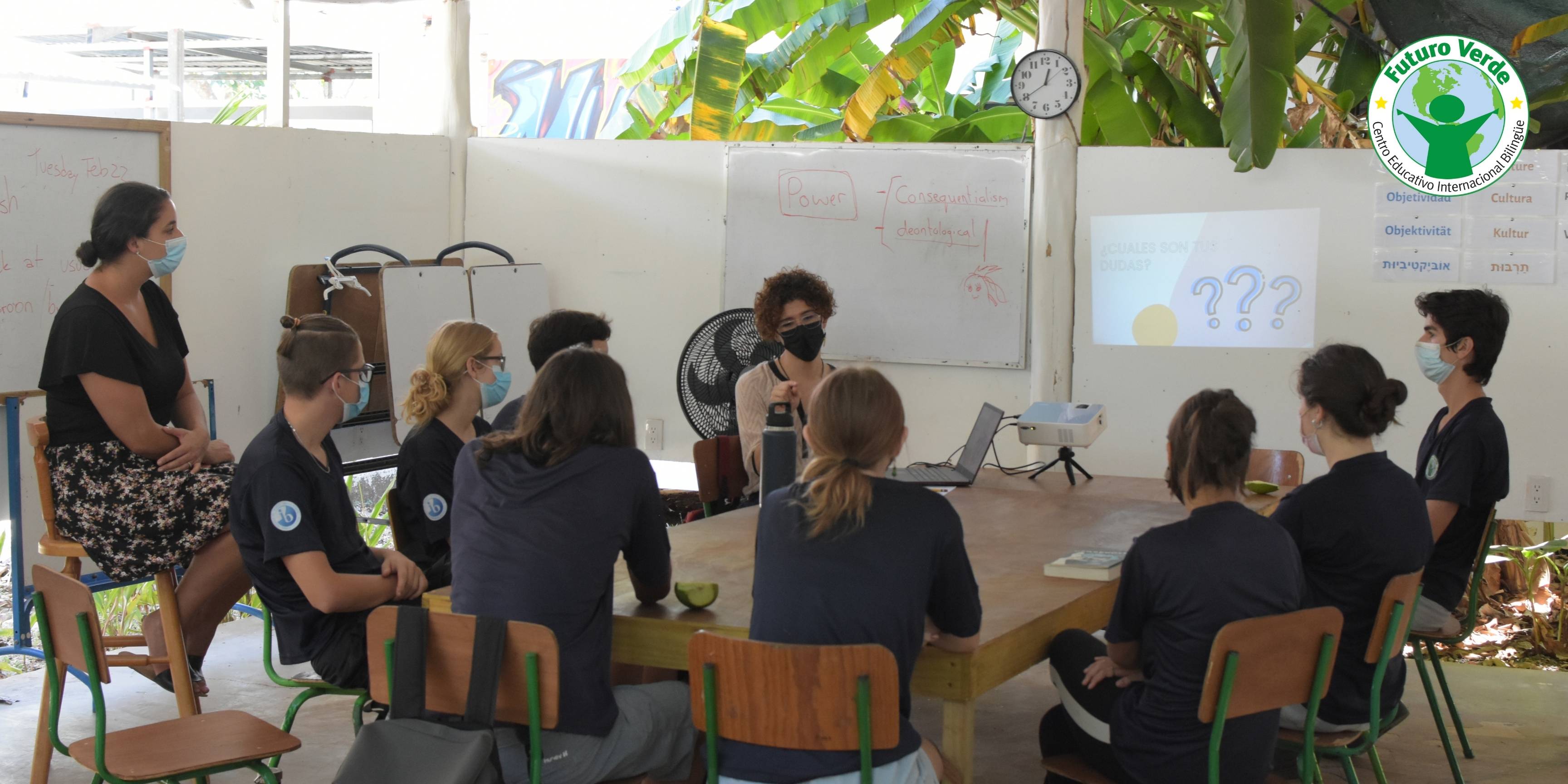
by Angie Briceño | Jun 7, 2022

At the end of the 2017 school year, Futuro Verde received its certification as an International Baccalaureate World School. The International Baccalaureate Organization evaluates schools that acquire this certification every five years. It has been five years since our certification and for some months now we have been working on preparing for the evaluation by the International Baccalaureate Organization.
But, what does the IB Diploma Program evaluation process for schools around the world consist of?
According to the International Baccalaureate Organization, the primary objective of IB program evaluation is to help schools continually develop their capacity to implement IB programs in order to have a greater effect on student outcomes through the development of teaching and leadership practices (2).
The evaluation of the Diploma Program in the school engages the school in a process of reflection that allows us to understand which aspects of the program are being developed effectively and which need further development. This reflection is done in conjunction with students, families, the board of directors, teachers and staff members who are directly involved in the implementation of the program.
The evaluation consists of three distinct parts:
- The preliminary review, where the school reviews and updates the information that was provided at the beginning of the certification process. This section includes a survey of parents with children who are attending, have attended or will attend the Diploma Program the following school year.
- A process of self-evaluation, collaboration and reflection in which different stakeholders participate and where families and students are invited to participate in the process.
- Finally, a visit to the school, which in our case will take place on April 19, 20 and 21, 2023.
Once this evaluation process is completed, the IB Organization provides the school’s leadership team with the findings of the process and recommendations for the school.
For those families and students directly involved in the evaluation process, a form will be sent to them so that they can collaborate with the reflection process.
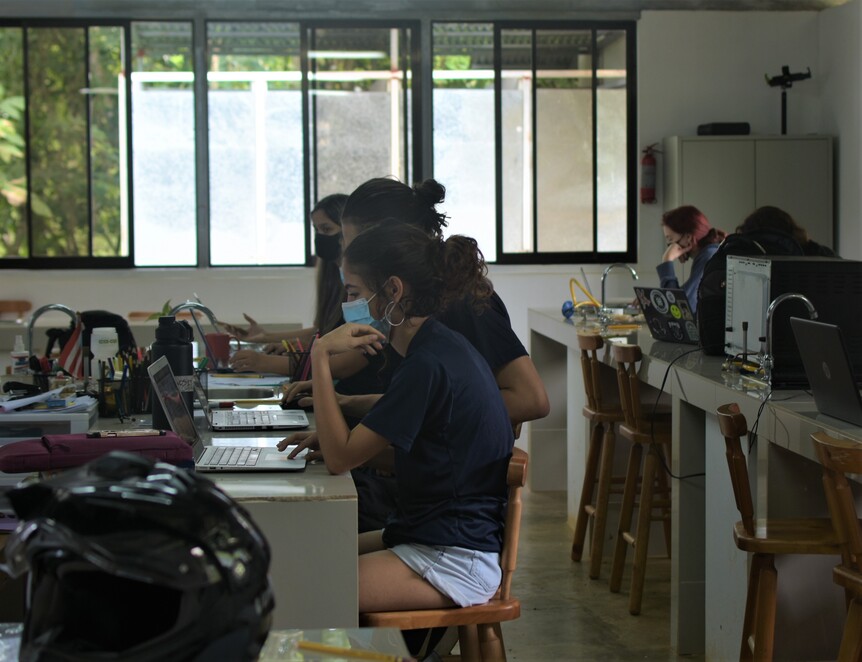
by Khalida Lockheed | Oct 20, 2021

Transitions
The transition to an International calendar has made the timing of the end of this school year and the beginning of the next school year feel odd. This is the time of year when, traditionally, we would be planning our end of the year activities, the closure of the school year coinciding with the closure of the calendar year. This year, however, we will be celebrating the culmination of primary school’s 6th graders on October 14th, but we won’t be celebrating the culmination and graduation of our 12th graders until the end of November, long after the next school year and the new IB cohort begins!
Looking Back
Our November 2021 IB cohort is preparing for their final exams and finishing up any last minute touches to their coursework which will finalize their time, not only as IB students, but Futuro Verde students. Some of this cohort have been Futuro Verde students since the school’s founding, 13 years ago! They are anxious and stressed, simultaneously looking ahead to their future plans and studies, while reflecting back on their time at Futuro Verde. They will be hosting our last Peace Practice of the year and of their student careers on October 7th. It will be an opportunity and a space for reflection.
Looking Ahead
Our May 2023 IB cohort is anxiously looking forward to beginning their journey as IB students. They have made their course selections and are enthusiastic to begin. Highlights for their upcoming year include Theory of Knowledge for all 11th graders, the new Psychology course, and exciting organized CAS experiences and retreats.
Finally, as with all transitions, changes, and new beginnings, we welcome Karol Madrigal to her new position as IB Coordinator and Curriculum Coordinator. With over 7 years of experience at Futuro Verde and currently working as the Curriculum Coordination at CINDEA, she is more than qualified to take on this new position. While our students will miss having her teach them in the classroom, she will now have the opportunity to positively impact students of all ages at Futuro Verde. As for myself, I will be continuing to assist with IB Coordination during the process of having our IB authorization verified during the 2022 and 2023 years and am delighted to be returning to teach Visual Arts at the secondary level.
During times of transition and change, life requires us to embody the IB Learner Profiles of being reflective while simultaneously being risk takers. The greatest growth happens on the trapeze of life when we let go of one trapeze and fly towards the next.
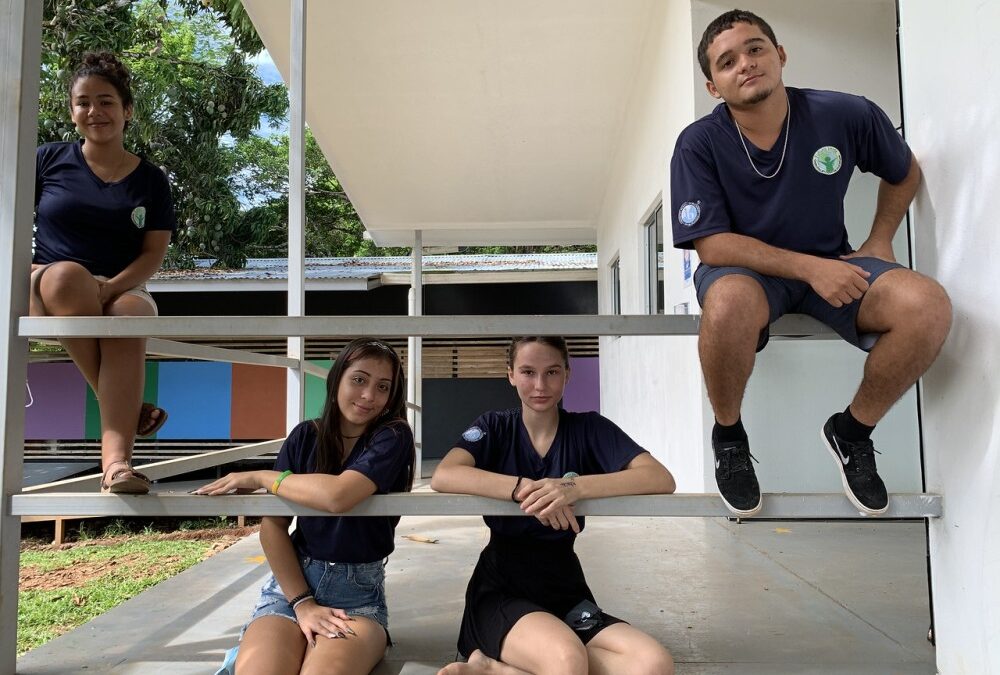
by Khalida Lockheed | May 7, 2021
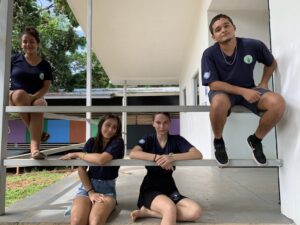
The International Baccalaureate is not only for Diploma Program students, 11th and 12th graders. The IB Organization offers programs in the Primary and Middle years, preparing students to be global citizens, transdisciplinary thinkers, and well rounded people.
Like other IB schools in Costa Rica, Futuro Verde, is not authorized as a “continuum school” offering all three programs. However, by offering the capstone Diploma Program, in order to properly prepare students to be successful has required that we align the primary and middle years’ curriculum to IB.
What does this mean?
It means that all teachers, at all levels, must learn about the IB programs and ensure students are meeting the required standards.
Furthermore, the IB programs and courses are continuously undergoing revision with updates and thorough course program review and revision every seven years. IB encourages teachers to participate in this process making it a collaborative product.
Okay, you say, it makes sense that teachers and students should learn about and practice the IB program at their level. But what about families? As parents of students in a private school, it is clear that education is an important value in your family. Why it is important for parents to understand the program of study of their children became more apparent during the last school year when the pandemic sent students home for virtual learning.
We all experienced school in a new way over the last year!
To this end, we invite you to visit this space for more information and an overview of the IB. In addition, we will be organizing parent meetings to further inform and learn about the IB programs and what it means for students at every level.
Keep tuned!
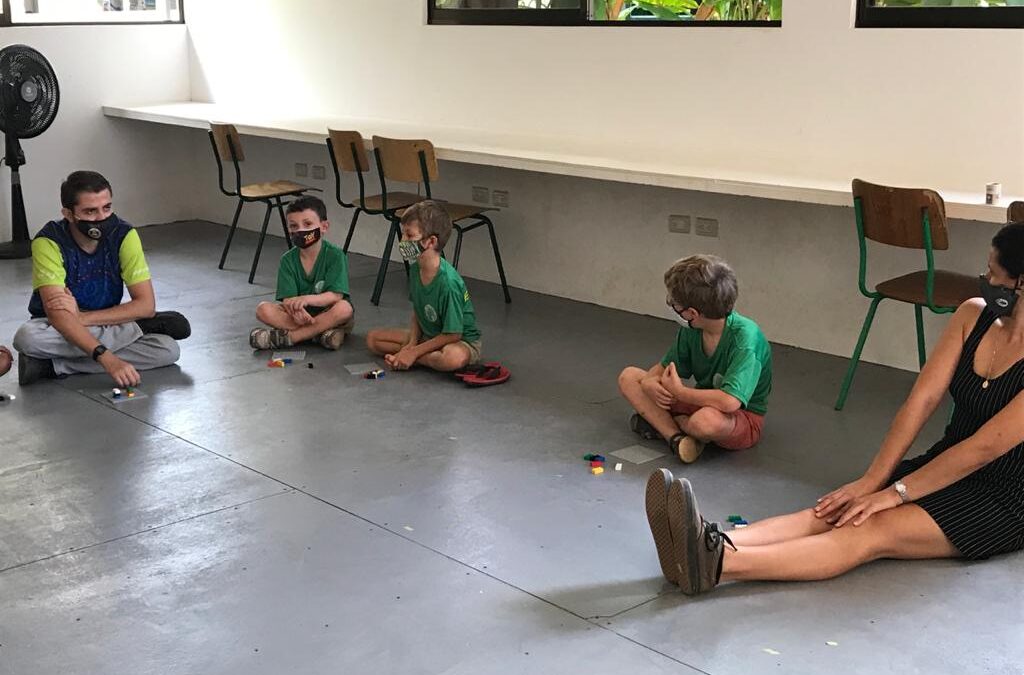
by Futuro Verde | Apr 27, 2021
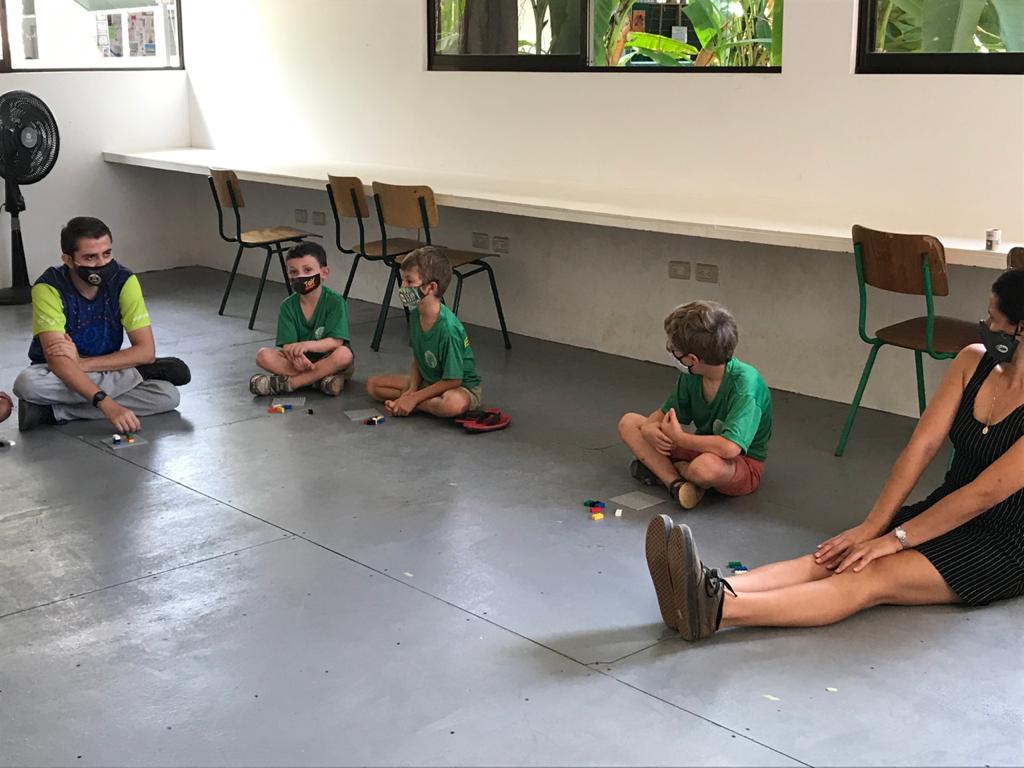
This 2020-21 has been atypical for our children, where we have had to migrate to a digital age that we were not used to. As part of the additional support for the boys, we implemented the robotics course.
This discipline gives us an early approach to the STEAM environment in which the jobs of the future are found, allowing students to develop soft skills such as programming, design, teamwork, among others.
An important point in this program is the approach to steam careers (programming, Electrical Engineer, Mechanical Engineer, Product Design Engineer). This allows the student before choosing their future career, to have a glimpse of the skills necessary to perform in these careers and not go blind in their choice.
Our robotics program seeks to open all these spaces, to bring children closer to the 4.0 industrial revolution that is diversifying the work spaces of the future.
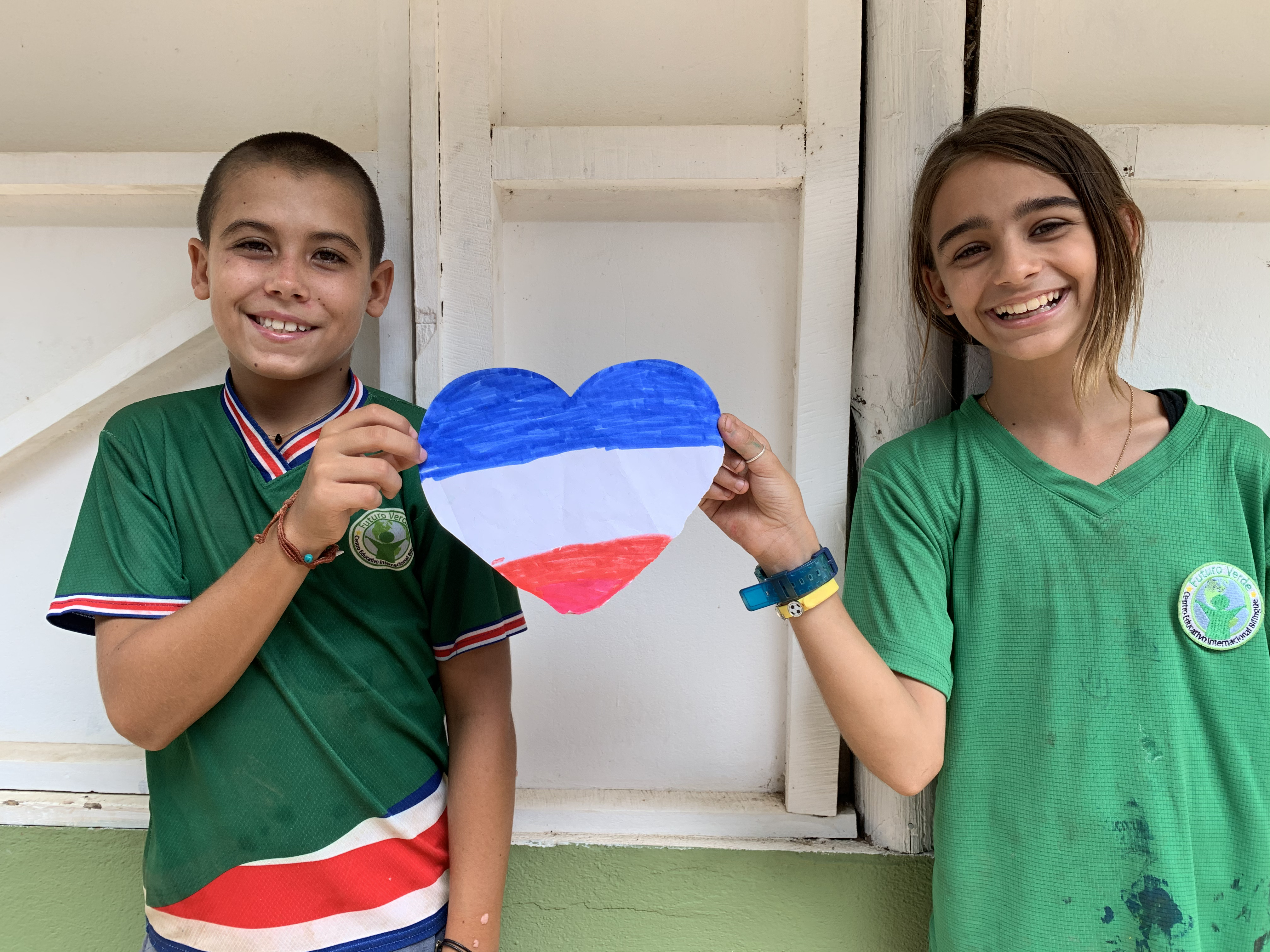
by Futuro Verde | Mar 4, 2021

By Melanie
The festival of the French language is celebrated on five continents. Why? It seems that 274 million people speak French, in France, Belgium, Quebec, in most African countries… with different accents! People everywhere use the same words and the same grammar. But it took twenty-five centuries to invent this language.
What are the origins of the French language?
The origins of the French language go back more than 2000 years. At that time, France was inhabited by Gallic tribes. Among them, they used the Celtic language to understand each other. In the year 51 BC, a great upheaval occurred in the land of the Gauls. The whole of Gaul was conquered by the Roman troops of Julius Caesar. As the Romans were fluent in Latin, this language became the official language of Gaul. Very proud, the Gauls have long been communicating among themselves in their official language. It would be a few hundred years before these two languages merged to form a new one. Do you know what they called this new language? French.
Who invented French?
Despite what one might think, the French language was not invented by a single person. Over the centuries that followed, the French language evolved slowly, at the pace of conquests and the opportunities of history. In the Middle Ages, more variants of French dialects were still spoken in the different regions of France. Because Paris became the capital of France in the 12th century, French should prevail throughout the region.
Although the French language is now defined by dictionaries and grammars, it continues to evolve. If ancestors are banished from the vocabulary, authors are invented to describe new reals.
What is Francophonie?
The Francophonie is part of a community of people who speak French. It is also all the countries or regions where French is spoken. In the world, 57 countries are French-speaking. Examples include Switzerland or Belgium, Quebec in Canada, Haiti or Madagascar. In 30 countries or regions, French is the only official language. It is used by politicians, in the media and taught in schools. This is the case in France, of course, but also in the French overseas departments and territories and in many African countries such as Benin, Burkina Faso or Côte d’Ivoire. In 26 countries, French is one of the official languages, but it is not the only one. In Switzerland, we speak French, German and Italian. In Canada, it is the official language of English. In the city of Pondicherry, India, French is the official language along with English and three Indian languages. There are also countries where French is not the official language, but is nevertheless used by their inhabitants. If you have been to Morocco or Algeria, you may have noticed that the people speak our language very well.
Why do we speak French outside France?
Most French-speaking countries or regions are former French colonies (see the dictionary of the day). This is the case, for example, of Senegal, Madagascar, Quebec, Haiti or Pondicherry. France occupied these countries at the time of the colonies and imposed its language there. After independence (these countries became autonomous), some of these countries continued to teach French in schools and to use it in their administrations. But there are also French-speaking countries that are not former colonies. Belgium, for example. In fact, France’s borders have not always been as we know them today. Throughout history, they have moved. France’s borders extended to the south of Belgium and the north belonged to the Netherlands. For this reason, the official languages of Belgium are French in the south and Dutch in the north.
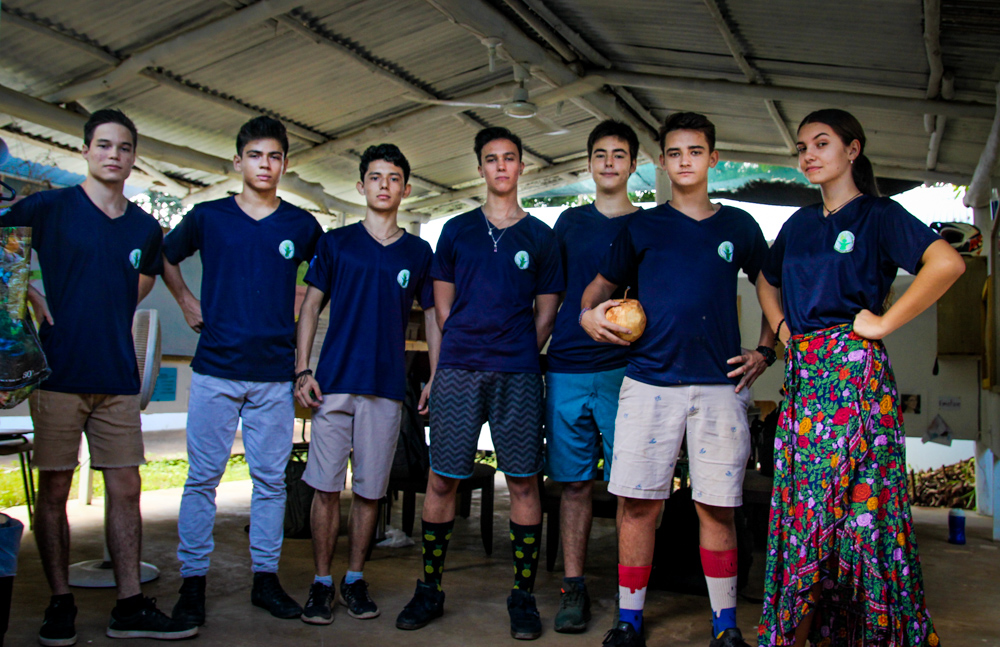
by Angie Briceño | May 5, 2020

We all remember our last year of high school: a moment in each of our lives full of all kinds of different emotions like stress, anxiety, excitement, and happiness. High school seniors experience many feelings and emotions. That last year is a culmination of a stage in life, the line between starting to live an adult life and leaving behind the life of a teenager and high schooler. That is why it is such an important time in life to have unique experiences and create lifelong memories.
High school seniors around the world are living in a unique moment in history, and our seniors are no exception. This pandemic has completely changed their senior year in terms of tests, deadlines, and the uncertainty of what will happen next. Aside from academics, they are also experiencing a social change in their senior year with their friends, eating together, doing activities that would leave a lasting impact on their lives and on the school as well. Have you imagined what it would be like to be a high school senior right now?
Here is what 12th graders Alejandro Mora and Maya Reolon have to say about their experiences during the pandemic:
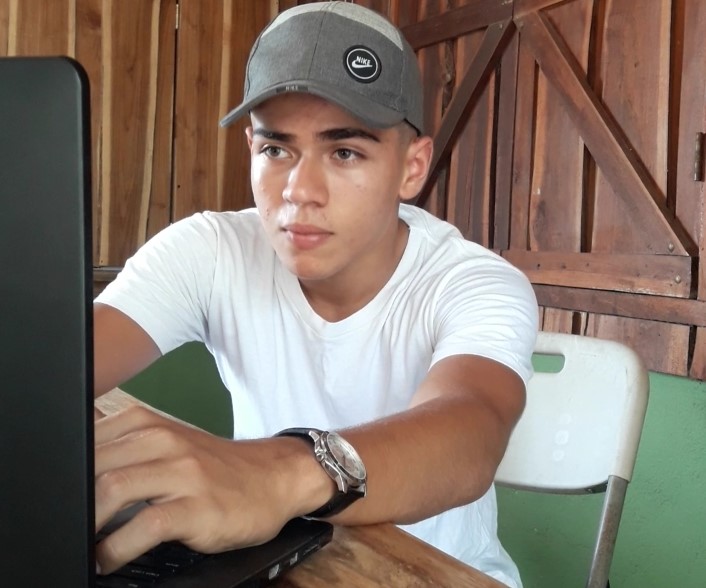 “For me the transition to online learning has been very difficult. It’s hard for me to stay motivated and concentrate on my work. I started doing schoolwork from home, but there were so many distractions like the TV, cell phone, etc. Things got easier once I had a good Internet connection, because I was able to contact my teachers more, and get my questions answered, but I still find online classes to be more difficult than in-person ones. What I miss most from being at school is socializing. I miss seeing my classmates every day. One good thing about this situation is that I can develop more self-discipline, which I have made an effort to do. I try to take more responsibility for myself and my things, and without counting on anyone to constantly supervise me, I can be more independent.”
“For me the transition to online learning has been very difficult. It’s hard for me to stay motivated and concentrate on my work. I started doing schoolwork from home, but there were so many distractions like the TV, cell phone, etc. Things got easier once I had a good Internet connection, because I was able to contact my teachers more, and get my questions answered, but I still find online classes to be more difficult than in-person ones. What I miss most from being at school is socializing. I miss seeing my classmates every day. One good thing about this situation is that I can develop more self-discipline, which I have made an effort to do. I try to take more responsibility for myself and my things, and without counting on anyone to constantly supervise me, I can be more independent.”
– Alejandro Mora 12°
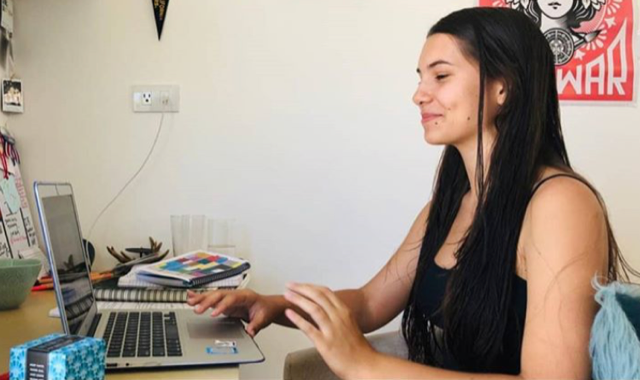
Life as a student, particularly as an IB senior, has been interesting during the COVID-19 pandemic. Us students, as well as teachers, are learning how to continue our academic lives by virtual means. Classes are now directed by Zoom meetings, presentations are now shared by videos, and so forth. This is all not as one would expect their educational year to be, but so far, it has gone well! When online learning began, all of us students in IB were worried if we would not have the motivation to continue our learning at home. Well, so far it has been over a month, and we have been working harder than ever. I am so proud of my IB peers and for the rest of the students, keeping the motivation up and working very hard during times like this. I am also very proud of the teachers, who are working very hard (if not harder) during this time of online learning. Personally, so far this year has been a learning curve. I am learning not only academic material, but I am learning patience and I am learning self-discipline. The teachers have been very supportive with us students, especially in IB. I am thankful for them, and I am thankful for my peers. I know that when school comes back, everybody will feel more at ease and happy to be in a classroom! Even though we are all physically apart, we are all united. Thank you Futuro Verde! Go class of 2020!










 “For me the transition to online learning has been very difficult. It’s hard for me to stay motivated and concentrate on my work. I started doing schoolwork from home, but there were so many distractions like the TV, cell phone, etc. Things got easier once I had a good Internet connection, because I was able to contact my teachers more, and get my questions answered, but I still find online classes to be more difficult than in-person ones. What I miss most from being at school is socializing. I miss seeing my classmates every day. One good thing about this situation is that I can develop more self-discipline, which I have made an effort to do. I try to take more responsibility for myself and my things, and without counting on anyone to constantly supervise me, I can be more independent.”
“For me the transition to online learning has been very difficult. It’s hard for me to stay motivated and concentrate on my work. I started doing schoolwork from home, but there were so many distractions like the TV, cell phone, etc. Things got easier once I had a good Internet connection, because I was able to contact my teachers more, and get my questions answered, but I still find online classes to be more difficult than in-person ones. What I miss most from being at school is socializing. I miss seeing my classmates every day. One good thing about this situation is that I can develop more self-discipline, which I have made an effort to do. I try to take more responsibility for myself and my things, and without counting on anyone to constantly supervise me, I can be more independent.”